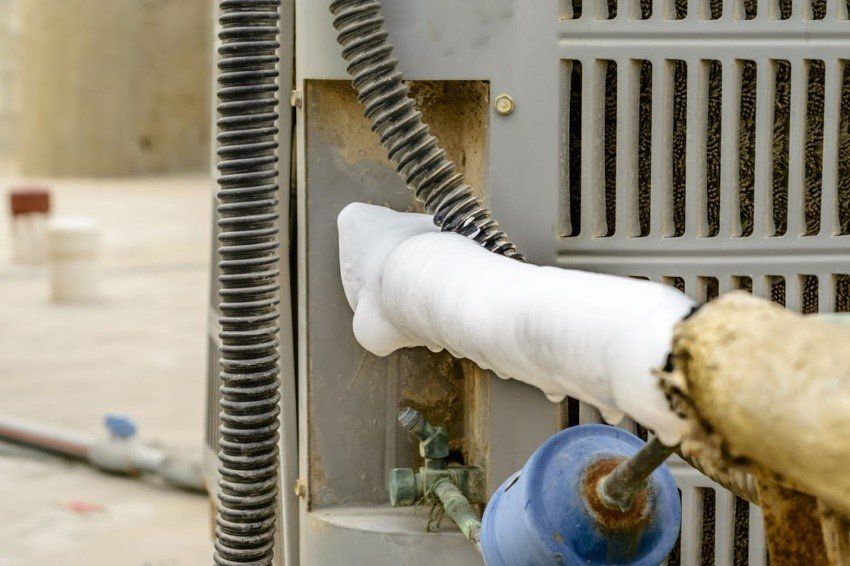4 Signs Your AC Refrigerant May Need a Recharge

If your air conditioner is no longer cooling properly, one of the first problems you should consider is a low refrigerant level. Without enough refrigerant, your air conditioner won’t be able to remove heat from the air inside your home.
In addition to poor cooling capacity, a low refrigerant level is often accompanied by a few other telltale symptoms. Here are four signs that your air conditioner may be in need of a refrigerant recharge.
1. AC That Runs Too Long
Regardless of how much refrigerant is left inside your air conditioner, it will still try to run until your home reaches the temperature set on the thermostat. When your AC is low enough on refrigerant that it doesn’t cool your home at all, this could even mean that it will run indefinitely. Always keep an eye on how long your AC runs before you shut it off, as excessive run time could mean your unit needs service.
There are other potential causes for long air conditioner run times, so low refrigerant isn’t always to blame. For example, a clogged HVAC air filter can limit airflow through your system and force it to run longer to deliver the same amount of air. You should consider long run times to be an early warning sign of low refrigerant, but look for other symptoms as well before you determine this is the problem.
2. Increased Energy Bills
How frequently and how long you run your air conditioner goes hand-in-hand with how much your monthly energy bills will be each month. Since low refrigerant can force your AC to run longer, it can also cause a sudden and unexpected increase in your bill.
If a low refrigerant charge reduces your system’s efficiency and raises your energy bill, you will notice these problems without any change in your AC usage habits. Particularly hot days or changes in the number of people in your home can increase your home’s demand for cooling, but low refrigerant will cause the same effects without any changes in how much you run your air conditioner.
3. Hissing Refrigerant Lines
In a central air conditioner, the refrigerant is circulated in a closed loop between the outdoor condenser and the evaporator coils above your indoor air handler. Refrigerant doesn’t get used up over time, so a leak is almost always the cause behind a low refrigerant charge. While you can’t see refrigerant escape from your system, you may be able to detect a leak in another way.
The refrigerant in your air conditioner is under a significant amount of pressure. Like a punctured tire, refrigerant lines will often make an audible hissing sound as the refrigerant gas escapes from the system. If you suspect a refrigerant leak, turn your air conditioner off and listen near the outdoor condenser for the sound of this gas escaping from the refrigerant lines.
4. A Frozen AC Unit
An air conditioner that freezes up even on the hottest summer days can be surprising. This occurs when the refrigerant level is low enough in your system to cause the refrigerant lines and coils to reach a temperature below freezing. Moisture in the air then condenses on them and freezes.
Your condenser will still expand and cool the refrigerant when it’s low, which will cause the coils and lines to reach a much lower temperature than they’re designed for.
Not only will a frozen air conditioner fail to cool your home effectively, but it can also cause your condenser to overheat and become damaged if it continues to run. You should turn your air conditioner off and call a technician immediately when you notice it frozen.
When you know the signs of low refrigerant, you can save money, keep your home comfortable, and keep your air conditioner in good condition. If you suspect that your air conditioner is low on refrigerant, contact us at Edelman Inc. for a recharge, any necessary leak repair, and all your other HVAC service needs.
